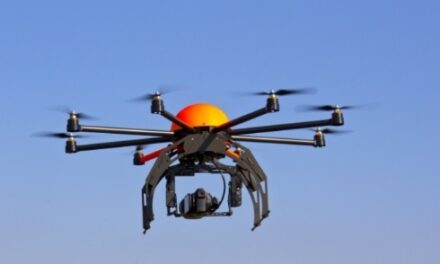We support our Publishers and Content Creators. You can view this story on their website by CLICKING HERE.
Dr. Peter Breggin: Transhumanism, the cult of “silicon immortality,” threatens HUMAN IDENTITY
- Dr. Peter Breggin, a renowned psychiatrist and author, criticized the transhumanist movement in a “Health Ranger Report” interview, arguing that it devalues human life by reducing it to mere biological matter that can be enhanced or replaced.
- Breggin drew a parallel between transhumanism and severe psychosis, suggesting that denying the value of human existence and identity can lead to a loss of touch with reality.
- The psychiatrist emphasized that rapid technological advancements pose a risk of dehumanization, where humans might be viewed as replaceable by machines, raising ethical and existential concerns.
- Breggin highlighted the need to question the morality and consequences of human-machine integration, especially as companies like Neuralink and Chinese robotics firms push the boundaries of technology.
- The interview called for a re-evaluation of human values and identity in the face of technological advancements, urging society to preserve the essence of human existence, including connection, love and appreciation for life
In a recent “Health Ranger Report” interview with Mike Adams, renowned psychiatrist and author Dr. Peter Breggin challenged the growing transhumanist movement that seeks to merge humans with artificial intelligence (AI) and other advanced technologies, ultimately aiming for a form of silicon-based immortality.
According to Breggin, this movement not only strips humanity of its inherent value and divinity but also poses a deep-seated psychological threat to the human identity. Transhumanism, a philosophical and scientific movement, advocates the use of technology to enhance human capabilities and achieve immortality.
Proponents of transhumanism believe that by merging with machines, humans can transcend their biological limitations and achieve a form of eternal existence. However, Breggin argues that this ideological shift fundamentally denies the value of human life, reducing it to mere biological matter that can be replaced or enhanced with technology.
Breggin drew a parallel between the transhumanist dream and the symptoms of severe psychosis, where individuals often lose touch with reality and struggle to distinguish between their own existence and that of machines or delusions.
“When you deny the existence of human beings, you enter into a form of craziness,” Breggin said. “And when you lose touch with the joy and the interest in being human and knowing human creations, knowing God’s creation that’s when you lose reality.”
Disconnection from human reality not merely a philosophical concern
The veteran psychiatrist and therapist emphasized that this disconnection from human reality is not merely a philosophical concern. It reflects a broader trend of dehumanization driven by technological advancements. In today’s world, where AI and robotics are rapidly evolving, there is a real danger that humans will be viewed as obsolete, replaceable by machines in every aspect of life.
Breggin underscored the importance of questioning the morality and existential consequences of a future where human identity is blurred with that of machines. The legal expert’s comments come at a time when the global tech industry is rapidly advancing in fields such as advanced robotics, artificial intelligence and brain-computer interfaces.
Companies like Elon Musk’s Neuralink and China’s military-linked robotics firms are pushing the boundaries of what is possible with human-machine integration, from humanoid robots performing surgeries to digital world simulators that can train machines in various tasks, including combat. (Related: In two years, China plans to unleash mass-produced humanoid robots to replace human workers)
Breggin’s insights highlighted the urgent need for society to consider the philosophical, ethical and psychological implications of transhumanism. As humanity stands on the cusp of a technological revolution that promises to redefine what it means to be human.
He also called for a re-examination of human values, emphasizing that the essence of human existence lies in their ability to connect, love and appreciate life itself. As the world moves toward an era where machines may blur the lines between life and artificiality, the importance of preserving human essence takes on a new significance.
Follow Transhumanism.news for more news about the transhumanist agenda.
Watch the full conversation between Dr. Peter Breggin and the Health Ranger Mike Adams below.
This video is from the Health Ranger Report channel on Brighteon.com.
More related stories:
Mark Milley: ROBOTS could make up a third of the U.S. military by 2039.
Study: People with Machiavellian tendencies are in favor of transhumanism/mind uploading technology.
Sources include:

 Conservative
Conservative  Search
Search Trending
Trending Current News
Current News 





